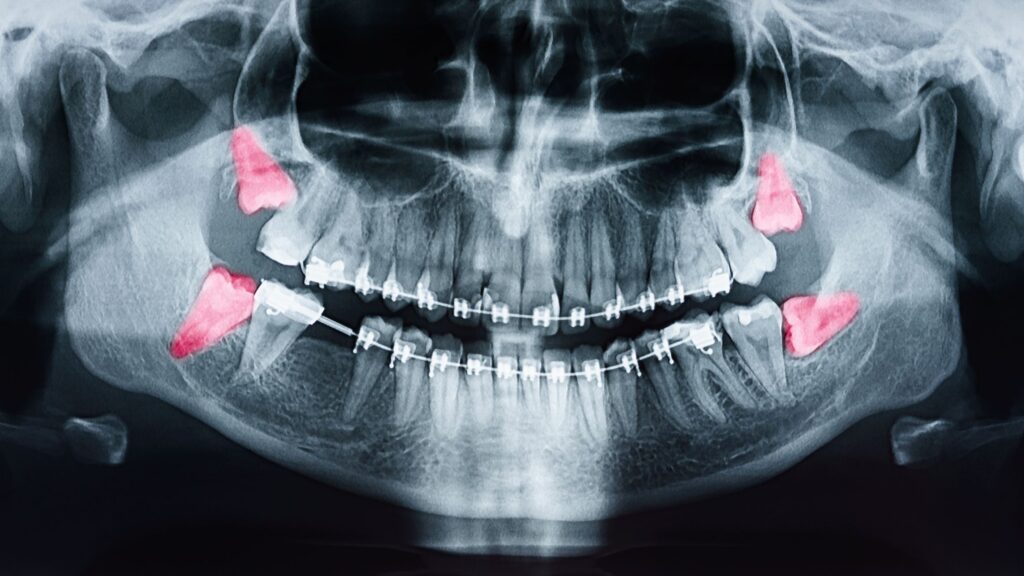Tooth Tally: How Many Wisdom Teeth Do I Have?
January 6, 2025

If you’re a young adult between 17 and 25 years old and your jaw feels sore or achy, your wisdom teeth may be struggling to erupt. These molars are so notorious for causing problems when they grow that most dentists recommend extracting them before they become problematic.
However, some lucky people go their entire lives without experiencing wisdom tooth pain or issues. Continue reading to learn more about these late-arrivals and why you might not have to worry about them!
What Are Wisdom Teeth?
Wisdom teeth are extra molars that appear behind your others as you approach adulthood. It’s believed our ancestors developed them to subsist on a tough diet of chewy meats, roots, nuts, and berries. These foods likely wore down their enamel or damaged their teeth during their youth, and they may have needed additional ones to compensate for any they could no longer use.
Today, they are removed more often than not because we no longer need them to survive, and they tend to cause issues that can detract from your dental health.
How Are Wisdom Teeth Problematic?
There are several reasons your dentist might recommend removing these late-arrivals, such as:
- Discomfort. Our jaws today are smaller and rounder than those of our ancestors, so these teeth often cause aches as they struggle to find space to erupt.
- Oral problems. They often become trapped in your gums, making them hard to clean, which increases the likelihood of developing cavities, gum disease, or injuries.
- Impaction. If they cannot clear your gums, they become trapped in your jaw and develop an infection that can spread to other areas of your body and contribute to additional health concerns.
- Cysts. If they become infected, they can form a small, painful fluid-filled sac in your jaw.
- Overcrowding. They often push neighboring teeth out of alignment as they arrive, wearing down your enamel prematurely.
How Many Wisdom Teeth Do We Have?
Most people have four of these additional chompers; one for each quadrant of their mouth. However, it’s possible to be born with 1, 2, 3 or even none at all! Although the reasons for this are unknown, some think that genetics play a role. If either of your parents are missing one or more wisdom teeth, you’re also less likely to develop all four.
Remember, though, that just because you don’t see any wisdom teeth doesn’t mean they aren’t there. The only way to know for certain how many you have is to visit your dentist. They can take X-rays and examine your smile to determine how many of the extra molars you’re growing. They’ll also let you know whether or not they recommend extracting them based on their findings and your current dental condition.
Now that you know more about wisdom teeth, you can see why it’s often more beneficial to remove them than let them grow, regardless of how many there are.
About the Practice
Patients at Springhetti Dentistry benefit from two dedicated dentists who provide a full array of services to meet all your family’s needs under one roof. Dr. Springhetti and Dr. Oberley take the time to get to know their patients so they can deliver personalized solutions to perfect their smiles. They combine a caring approach with state-of-the-art technology to enhance your comfort and deliver accurate treatment results. If your jaw hurts or you’re concerned about wisdom teeth, you can request an appointment on the website or call (317) 875-7645.
No Comments
No comments yet.
RSS feed for comments on this post.
Sorry, the comment form is closed at this time.

